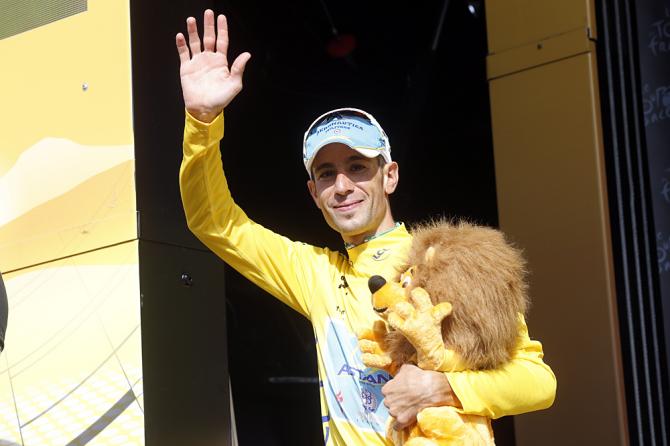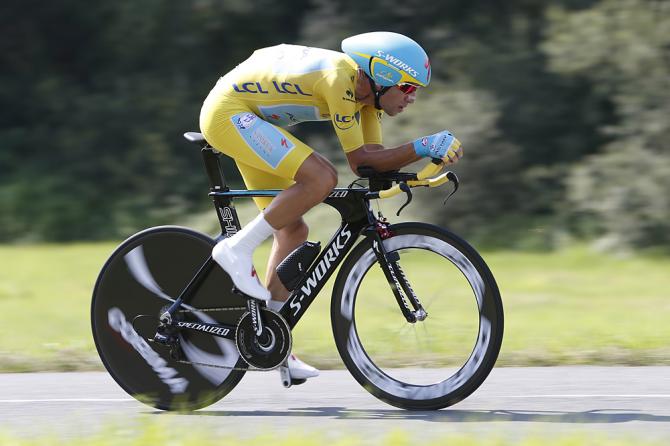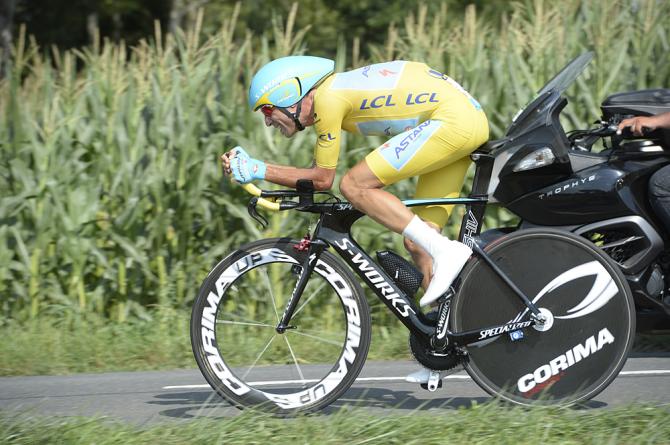Nibali's journey ends in Tour de France victory
"If it wasn't for stringent testing, maybe I wouldn't be here today"
The latest race content, interviews, features, reviews and expert buying guides, direct to your inbox!
You are now subscribed
Your newsletter sign-up was successful



On Sunday, Vincenzo Nibali will bridge a 16-year gap to become Italy's first Tour de France winner since the late Marco Pantani, but when he lined up for his debut in the race in 2008, the comparisons with Il Pirata were heaped upon another young Italian rider.
Riccardo Riccò scorched to two stage victories in the opening 10 days of that Tour, before, all too predictably, he was expelled from the race after a positive test for CERA. Nibali was unable to follow his contemporary on that flight path so close to the sun. He reached Paris in 20th place, and - according to then directeur sportif Stefano Zanatta - utterly disenchanted by what he had encountered.
"It's true, I was very disheartened because I had ambitions to wear the white jersey," Nibali said in Perigueux on Saturday evening. "But with the steps that have been taken since - I'm talking about targeted testing, biological passport and the MPCC - great progress has been made and the results came after that too. So maybe I have to say thanks to them, because if it wasn't for such targeted and stringent testing, maybe I wouldn't be here today."
As the years passed, so too did Nibali's progress. He took sixth at the Tour the following year, and then captured the Vuelta a España in 2010. In 2011, he finished on the podium of the Giro d'Italia for the second successive season, and then claimed third place at the Tour in 2012.
By the time he won the Giro last year, Nibali was the brightest star in the Italian firmament, and the Pantani comparisons were his alone. When the race visited the Galibier, for instance, the front page of one Italian newspaper urged Nibali to conjure up a feat akin to Pantani's on the same pass in 1998.
Nibali deftly side-stepped those weighty comparisons at the Giro, and did so again in his press conference in Perigueux, politely pointing out how his victory had been very different to Pantani's. "It's hard to make a comparison between what Pantani did so many years ago and what I've done now because Marco won his Tour in the last week, whereas it was the opposite for me," Nibali said. "I took the jersey after two days, I don't know what to say."
At times, unfortunately the simultaneous interpretation service provided for the Tour winner's final press conference didn't seem to know quite what to say either, mistranslating at least two of the questions posed for Nibali. It was a particular shame given that an interpreter from within cycling had been by the Sicilian's side at all of his post-stage press conferences up to this one.
The latest race content, interviews, features, reviews and expert buying guides, direct to your inbox!
One mistranslated topic, on the state of Italian cycling, was revisited in a later answer. The other, on whether Nibali was happy for his anti-doping samples to be stored indefinitely, was lost, although he was subsequently asked what he had to say to people from outside of cycling who wanted to know if he was clean.
"I want to tell my story, my roots, where I came from and all of the sacrifices I've made to get from where I started from to where I am now. I'm proud of it," Nibali said.
Italian cycling
Nibali's Tour victory has made a significant media impact in his home country, though it remains to be seen if it will help Italian cycling restore some of its lost lustre. There is currently just one Italian-registered team remaining at WorldTour level, the amateur production line of the 1980s and 1990s seems to have dried up and many races at all levels and in all regions are struggling to survive due to a lack of funding.
"It's true that Italian cycling has its problems but I don't think it's down to a lack of riders or a lack of young talent," Nibali said. "It's about the lack of sponsors and that's down to the wider economic crisis. I've seen this with my old amateur team, and I've seen it with my parents' business too. They used to have two video stores, but now they only have one. So it's a general problem that's reflected in cycling."
Unusually, Italy's strongest performers in recent seasons have come from the south of the country, rather than the traditionally cycling heartlands of Tuscany, Lombardy and the Veneto. Nibali hails from Sicily, his teammate Fabio Aru is Sardinian and Domenico Pozzovivo (Ag2r-La Mondiale) is from Basilicata.
"Maybe it's because there are fewer distractions or because many parents want to give their children a focus and future, and the best future might be in sport," Nibali said of the phenomenon.
Goals to come
Nibali capped his Tour with a solid fourth place finish in Saturday's 54km time trial - "It was a hard day with all the false flats," he said - and he now joins an elite list of riders to have won all three Grand Tours, adding his name to this of Jacques Anquetil, Felice Gimondi, Eddy Merckx, Bernard Hinault and Alberto Contador.
"I still have ambitions to win other races, like the Tour of Lombardy, Liège-Bastogne-Liège and the world championships," Nibali said. "I've always loved those races and I've always tried to do well everywhere. I'm not just a stage race specialist."
In the coming months, Nibali is expected to tackle a week of criteriums in Belgium and northern Europe, the WorldTour races in Canada and the world championships in Ponferrada as part of the squadra azzurra.
Already, however, thoughts are turning to next July, and Nibali's prospects of defending his title against the grand absentees from the final two weeks of this Tour, Alberto Contador and Chris Froome, as well as Giro winner Nairo Quintana.
"Why not? And there's Bradley Wiggins too, although I was sorry to read that he said he's aiming mainly for the track now," Nibali said. "But yes, why not have a grand battle between all of us next year?"

Barry Ryan was Head of Features at Cyclingnews. He has covered professional cycling since 2010, reporting from the Tour de France, Giro d’Italia and events from Argentina to Japan. His writing has appeared in The Independent, Procycling and Cycling Plus. He is the author of The Ascent: Sean Kelly, Stephen Roche and the Rise of Irish Cycling’s Golden Generation, published by Gill Books.
